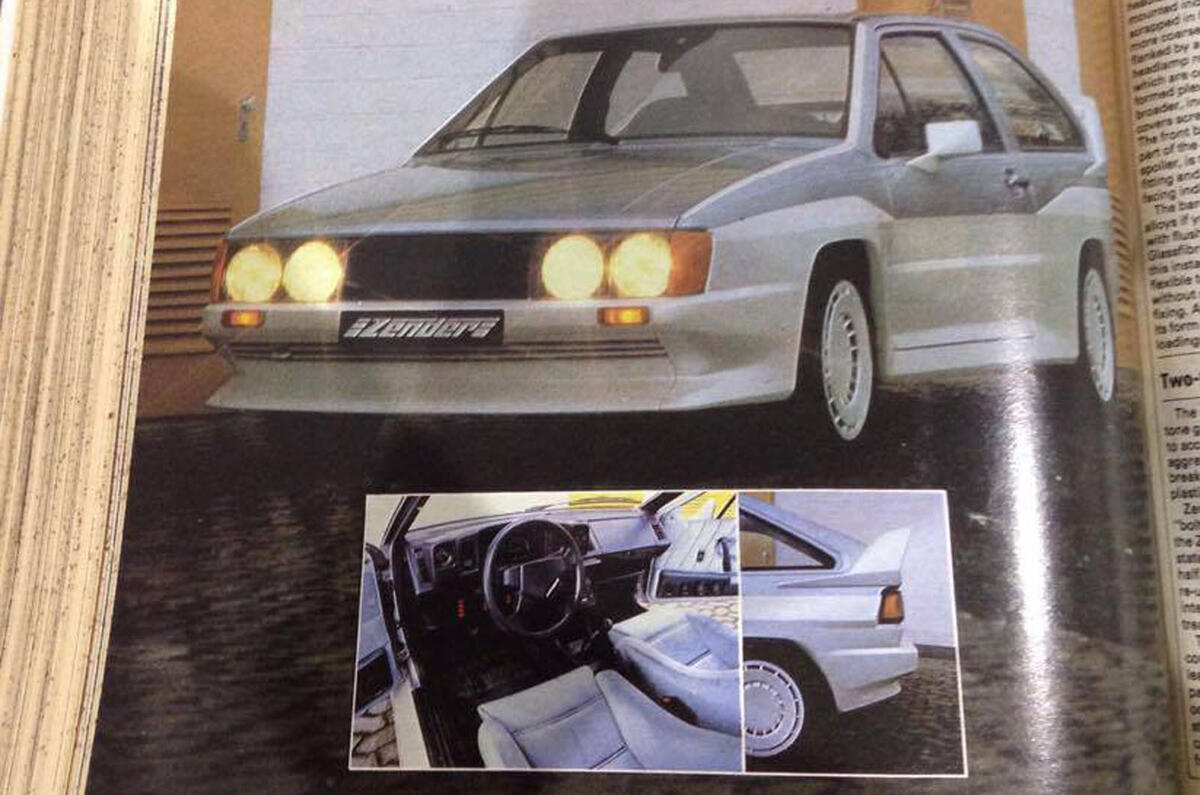Volkswagen first launched its Volkswagen Scirocco coupé back in 1974. More than half a million had been sold by the time it brought out the second-generation model in 1981.
Most thought the car to be a bit of a looker, but one Hans-Albert Zender had other ideas. His eponymous company started out as an aerodynamic and carbonfibre parts manufacturer, but in 1982 it turned its hand to the sporty VW.
On 22 May 1982, Autocar’s Richard Laurence had a look at his creation.
We dubbed it ‘The Force Nine Scirocco’ – the car is named after a desert wind that can reach hurricane speeds over the Mediterranean sea – and it really was a “brute transformation.”
“The car, named by Zender the Z40 Turbo, has been dramatically restyled below the waistline and around the hind quarters with the deliberate intention of giving the car a more aggressive and, presumably, more sporty appearance,” Laurence began.
“The spoilers, the wheelarch blisters and the seemingly obligatory pseudo skirts between the wheel wells, are fabricated from glass fibre, and bonded to the standard steel bodyshell.”
Zender’s aerodynamic experience was apparent: “Along the leading edge of each front wing and up the A-pillar are strips of the same material designed to keep the air flow as uniform as possible as it goes over the roof to be met by a massive – by toad car standards – rear wing, which has a pair of rather melodramatic buttress supports at each side of the tailgate,” which apparently were “purely for show”.
Along with the “two tone graphic treatment” on the outside, the inside was a suitably 80s cool affair.
“The entire facia and centre console are covered in soft blue leather, as are the loudspeaker panels in each door,” Autocar described. “The normal oddments space under the steering column is fitted with a cassette storage system. The front seats have been replaced by deep Recaro buckets and are upholstered with a luxuriously padded, blue velour material, which looks superb, but could prove less than satisfactory in the long term,” we quibbled.
“The quality of the work described so far is exemplary if a little garish. The car certainly is eye catching,” Laurence said.
It wasn’t just what met the eye that had been fiddled with, though. Zender had also altered what was going on under Scirocco’s bonnet.
“Theroetically, the engine conversion is an interesting one,” we said. “The ingredients are simple, perhaps too much so, for the turbocharger installation – designed and carried out by tuners, Dr. Schrick near Cologne, a company of considerable German reputation – is literally a “bolt on” arrangement with remarkably few changes to the standard 110 bhp, fuel injected GTI engine.”
From there, things actually got a little bit worrying: “What’s more, the conversion includes an air to air intercooler which dramatically increases the volume of charged air, therby creating potentially dangerous internal pressure on the normally aspirated standard engine.
“It seems petulant to be so negative about a car we’e not had the chance to drive – because of a blown engine – but it does appear the position of the turbocharger and wastegate could cause overheating problems because of their positions a long way away from any worthwhile cooling air flow.”




Join the debate
Add your comment
Very Interesting